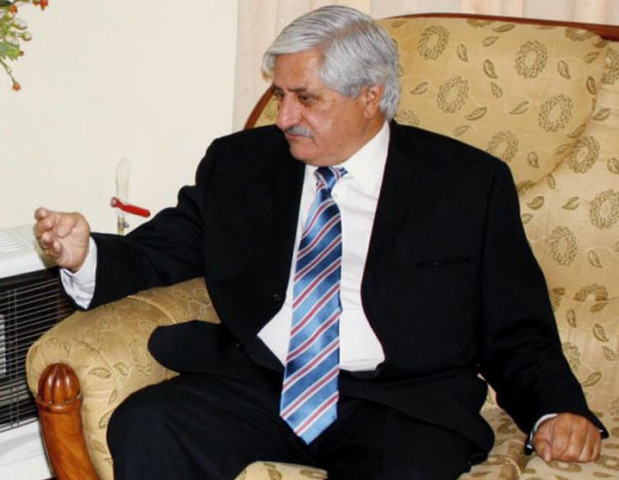Kashmir conundrum
India can hardly be expected to hand over its occupied territory to Pakistan or vice versa.

AJK President Sardar Muhammad Yaqoob Khan has said that the option of an ‘independent Kashmir’ could be talked about with India. PHOTO: INP/FILE
That the area has been a sticking point for any and all peace efforts between the two countries needs no repetition. One of the main problems in the resolution of the six-decade-old standoff has been the preponderance of absolutist official stands in both countries — and possible solutions involve which of the two would get complete control of the disputed region. In fact, even in the United Nations Security Council’s Resolution 47, the recommended plebiscite to be held in the region was only to have two options: join India or join Pakistan. Realistically, neither of the two options is any longer viable: India can hardly be expected to hand over its occupied territory to Pakistan or vice versa. That effectively leaves us with one option on the table — independence or autonomy — which has never been publicly considered and is, in fact, illegal to even suggest in Pakistan. We are told that some form of autonomy was discussed when General (retd) Musharraf was in power, but for all practical purposes that headway exists only in rumour.
The public admission that the ‘third way’ was even an option is, therefore, welcome because it could represent a long-awaited opening in an impasse that has been a roadblock for peace in the region — even if it means it is not necessarily reflective of a policy change yet. That it was by the president of AJK, someone who wouldn’t, and indeed couldn’t, make such a statement without approval from the highest officials in Islamabad and Rawalpindi, makes it all the more exciting.
Published in The Express Tribune, February 21st, 2014.
Like Opinion & Editorial on Facebook, follow @ETOpEd on Twitter to receive all updates on all our daily pieces.















COMMENTS
Comments are moderated and generally will be posted if they are on-topic and not abusive.
For more information, please see our Comments FAQ